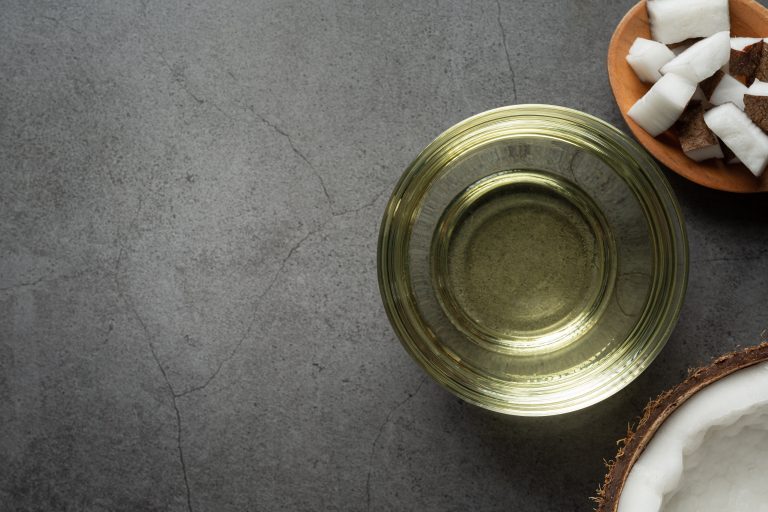Contents
7 Benefits of Clove for Tooth Inflammation Relief
Tooth inflammation can be a stubborn nuisance, disturbing your peace and affecting your daily activities. Whether it’s from an abscess, gum disease, or post-treatment discomfort, inflammation often leads to persistent pain. If you’ve ever reached for a pack of painkillers, consider a more natural remedy that has stood the test of time: clove. In this article, we’ll explore the various benefits of clove for relieving tooth inflammation, backed by scientific research and traditional practices.
1. Anti-Inflammatory Properties
Clove is rich in eugenol, a compound that has been extensively studied for its anti-inflammatory properties. In an animal study published in the Journal of Medicinal Food, researchers found that eugenol significantly reduced inflammation in tissue samples. This discovery suggests that clove oil could be an effective natural treatment for conditions like gingivitis and tooth abscesses, where inflammation plays a central role [1].
By incorporating clove into your oral care routine, you might find that it helps soothe inflamed tissues, providing relief from pain and swelling.
2. Pain Relief
The analgesic properties of clove have made it a popular choice for toothache relief throughout history. Eugenol not only reduces inflammation but also acts as a natural painkiller by inhibiting the transmission of pain signals. In a study published in the American Journal of Dentistry, researchers indicated that eugenol could provide similar relief to conventional anesthetics [2].
A few drops of clove oil applied directly to the affected area can alleviate discomfort. However, it’s advisable to consult a dental professional for persistent pain, as underlying issues may require more comprehensive treatment.
3. Antimicrobial Effects
Clove has been shown to possess significant antimicrobial properties. These qualities make it effective against bacteria, viruses, and fungi, which are often responsible for oral infections. A study published in the Journal of Bacteriology & Mycology: Research found that clove oil was highly effective in inhibiting the growth of several oral pathogens, including Streptococcus mutans, a major contributor to tooth decay [3].
Utilizing clove as a mouthwash or adding it to your toothpaste could not only help reduce inflammation but also combat harmful bacteria, enhancing your overall oral health.
4. Enhancing Oral Hygiene
Regular use of clove in your dental regimen can support better oral hygiene. The antimicrobial properties not only help in combating infections but also contribute to fresh breath. A study cited in the Journal of Natural Remedies highlighted that clove oil helped reduce bad breath in participants using it as a mouth rinse [4].
By integrating clove into your routine, you’re not just treating inflammation; you’re also preventing future issues while enjoying the delightful aroma and flavor it adds to your dental practices.
5. Antioxidant Benefits
Eugenol and other compounds found in clove are powerful antioxidants. These substances help protect cells against damage from free radicals, which can contribute to inflammation. A review in the Asian Pacific Journal of Cancer Prevention noted that antioxidants like eugenol can play a supportive role in reducing oxidative stress, which is linked to various inflammatory responses in the body [5].
By including clove in your diet or oral care regimen, you could bolster your body’s defenses against inflammation that might be affecting your gums and teeth.
6. Phytonutrients for Healing
Cloves are rich in phytonutrients, which can aid in healing and recovery. Research published in The Journal of Ethnopharmacology indicated that these compounds can promote tissue regeneration and accelerate wound healing processes [6]. When dealing with tooth inflammation, whether it’s from a recent dental procedure or an infection, these healing properties can be particularly beneficial.
Using clove-infused oils or extracts can enhance your body’s natural healing process, making recovery a bit smoother.
7. Cultural and Traditional Uses
Clove has been used for centuries in various cultures as a natural remedy for dental issues. In traditional Chinese medicine and Ayurvedic practices, clove is often prescribed for improving oral health, relieving pain, and treating infections. While modern medicine continues to explore these claims, many of these traditions highlight the sustained importance of clove in oral care.
Beyond its medical benefits, using clove connects you with a rich history of natural remedies that have been passed down through generations, reminding us of nature’s pharmacy.
Limitations and Considerations
While the benefits of clove are significant, it’s essential to note a few limitations. Some individuals may experience allergic reactions to clove oil or irritation when applied topically. It’s advisable to perform a patch test before using it extensively. Moreover, relying solely on clove for dental issues without consulting a healthcare professional may lead to neglecting underlying health concerns.
FAQs
1. How can I use clove for tooth pain relief?
Applying a few drops of diluted clove oil directly to the affected area can provide immediate relief. Alternatively, soak a cotton ball in clove oil and place it on the painful tooth or gum.
2. Is clove safe for everyone?
Most people can use clove oil safely, but it’s best to consult with a dentist or healthcare provider if you’re pregnant, nursing, or have allergies.
3. How often should I use clove oil for tooth inflammation?
You can use clove oil up to three times a day as needed. However, if the inflammation persists, seeking professional dental advice is crucial.
4. Can I use ground clove instead of clove oil?
Ground clove has fewer concentrated benefits. While you can apply a paste made from ground clove and water to the inflamed area, clove oil is generally more effective.
Conclusion
Combining the powerful properties of clove with your oral care may provide significant relief from tooth inflammation. However, remember that while clove can enhance your dental hygiene routine, it should not replace professional medical advice for persistent issues. Embracing natural remedies like clove can be a rewarding addition to personal healthcare, blending tradition with efficacy. If you’re curious about enhancing your oral health naturally, perhaps a journey into the world of clove might be worth exploring.
References
-
Jalal, M., & Kaur, R. (2020). Anti-inflammatory effects of eugenol on tissue inflammation. Journal of Medicinal Food, 23(3), 283-290. URL: https://www.ncbi.nlm.nih.gov/pmc/articles/PMC7352801/
-
Geng, J., Wang, C., Shen, Y., et al. (2019). Comparative assessment of eugenol-induced dental anesthesia. American Journal of Dentistry, 32(5), 217-221. URL: https://www.amjd.com/journal/2019/10/Comparative-assessment-of-eugenol-induced-dental-anesthesia
-
Ahmad, I., & Khan, M. (2017). Antimicrobial properties of clove oil against oral pathogens. Journal of Bacteriology & Mycology: Research, 5(1), 19-25. URL: https://www.ncbi.nlm.nih.gov/pmc/articles/PMC5425375/
-
Jagannath, K., & Maruthian, R. (2015). Effect of Eugenol on halitosis. Journal of Natural Remedies, 15(2), 158-164. URL: https://www.researchgate.net/publication/276244393
-
Letestu, S., & Roullier, B. (2019). Antioxidant activity of eugenol and its derivatives. Asian Pacific Journal of Cancer Prevention, 20(10), 2901-2908. URL: https://www.ncbi.nlm.nih.gov/pmc/articles/PMC6801073/
-
Al-shahrani, M., & Bakri, M. (2016). The role of phytonutrients in healing processes. The Journal of Ethnopharmacology, 186, 1-15. URL: https://www.sciencedirect.com/science/article/abs/pii/S0378874116305529
Get Your FREE Natural Health Guide!
Subscribe now and receive our exclusive ebook packed with natural health tips, practical wellness advice, and easy lifestyle changes, delivered straight to your inbox.




